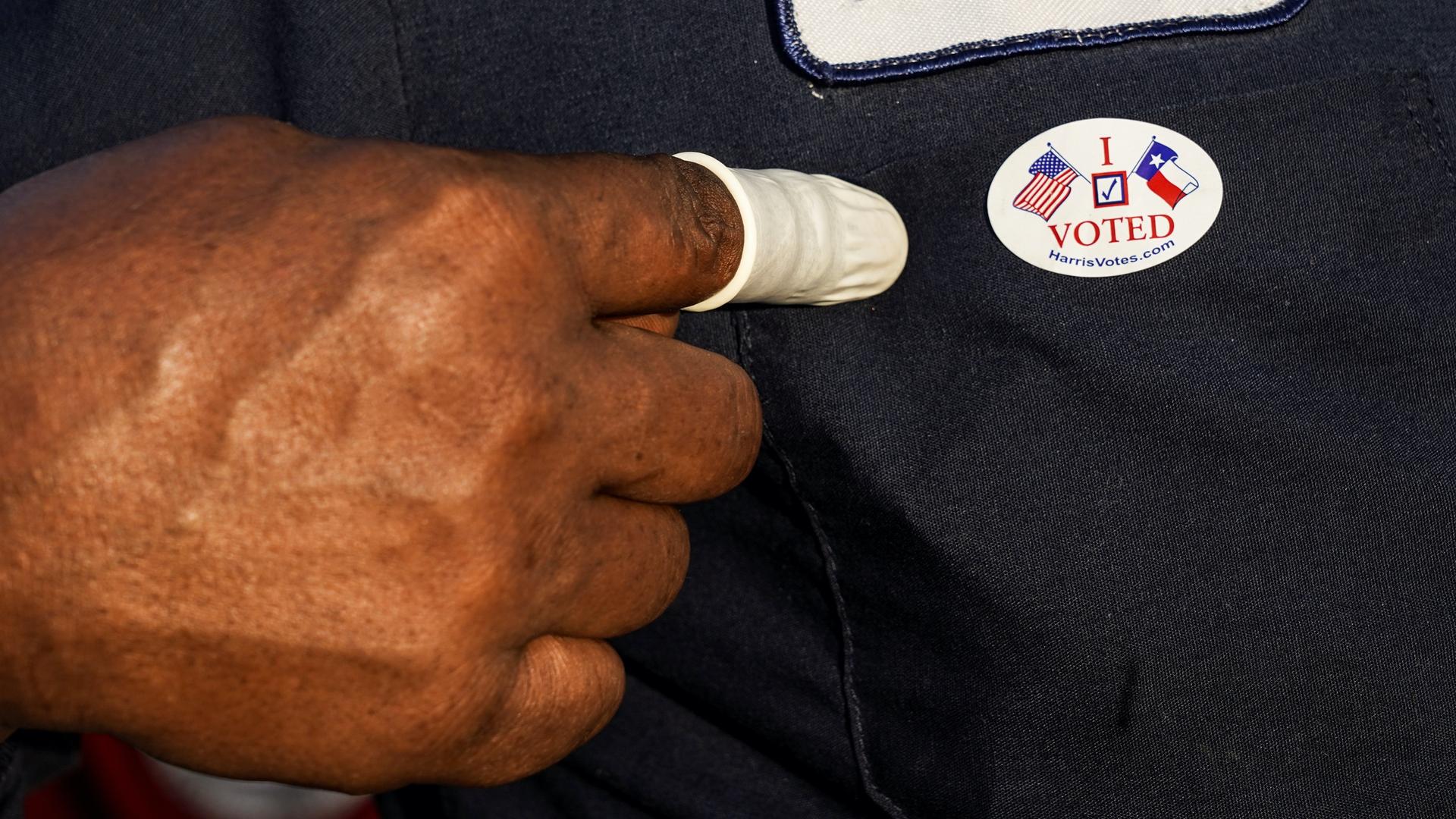Environmental groups work to mobilize Black and Latinx voters
Research shows Black and Latinx voters are generally more likely than white voters to list the environment and climate as top concerns. Yet, often due to voting obstacles, Black and especially Latinx voters are less likely to exercise their right to cast ballots. So, the League of Conservation Voters (LCV) and other environmental advocates are pushing get-out-the-vote efforts among these groups.
If green-leaning voters of color are mobilized to match the white voter turnout, it could change the outcome for candidates who favor environmental action.
Related: Meet the young Latino voters of ‘Every 30 Seconds’
“[Donald Trump] been an environmental disaster as president.”
“We want to make sure that Latinx and Black voters are choosing to vote for a pro-environment candidate — in this case, of course, that’s Joe Biden, as we look at the presidential ticket — and make sure that they understand just how awful Donald Trump has been,” says Pete Maysmith, senior vice president of campaigns for LCV. “He’s been an environmental disaster as president.”
Related: Explainer: Biden clashes with Trump in tale of two climate narratives
The Environmental Voter Project has found that many voters in these demographics — Black, Latinx youth — respond to peer pressure. That is, if somebody in a particular social group plans to vote and makes a bit of noise about it, that’s the thing most likely to persuade someone else in that group to vote.
Maysmith says, “texting somebody, reaching out, writing a letter to somebody, connecting in some way to somebody to say, ‘Hey, I’m voting, you should vote, too,’” can motivate people to vote if they might otherwise have not.
High-profile influencers such as media and sports stars who speak out about the importance of voting can powerfully motivate people to vote as well, Maysmith says. “We’ve seen LeBron James really step up in this regard, for example.”
Joe Biden has so far had some trouble connecting with Hispanic voters in Florida, a state that could well decide the election. Maysmith wants to reach these voters with a clear message linking Trump’s inaction and denial of the coronavirus pandemic to inaction and denial of climate change, and to the negative consequences that Trump’s inaction on both issues has for individuals, their families, neighborhoods and communities.
“We’ve made those linkages and told those stories through digital ads and through direct mail to these voters in Florida,” Maysmith says.
In a recent speech, Biden called Donald Trump a “climate arsonist” — strong language that Maysmith believes is also resonating with voters.
Related: Quest for racial justice in US must include environmental and climate issues, activists say
“You saw him tie it to the suburbs because Trump’s been trying to pretend that if you live in the suburbs, you’ll be in peril, your life will end, the suburbs will somehow be destroyed and disappeared…if Biden were to be president,” Maysmith says. “But Biden is saying we have climate floods, we have climate hurricanes — that’s the real threat to you and your community and your loved ones and the people in your orbit.”
“…[W]hat is happening to Black and brown communities is a result of environmental injustice. …It is connected to racial injustice in this country. Period. Full stop.”
Biden should continue to be “really direct…that what is happening to Black and brown communities is a result of environmental injustice,” Maysmith continues. “It is connected to racial injustice in this country. Period. Full stop,” he says. “Communities that have to live next to coal plants or facilities that dump toxic sludge into waterways or spew toxins into the air are predominantly Black and brown communities. That’s why, in part, you see higher rates of asthma and other disease and illnesses in those communities. So, making that direct linkage and naming that — I think there’s a lot of power in naming that and saying that.”
This article is based on an interview by Steve Curwood that aired on Living on Earth from PRX.
We want to hear your feedback so we can keep improving our website, theworld.org. Please fill out this quick survey and let us know your thoughts (your answers will be anonymous). Thanks for your time!
